

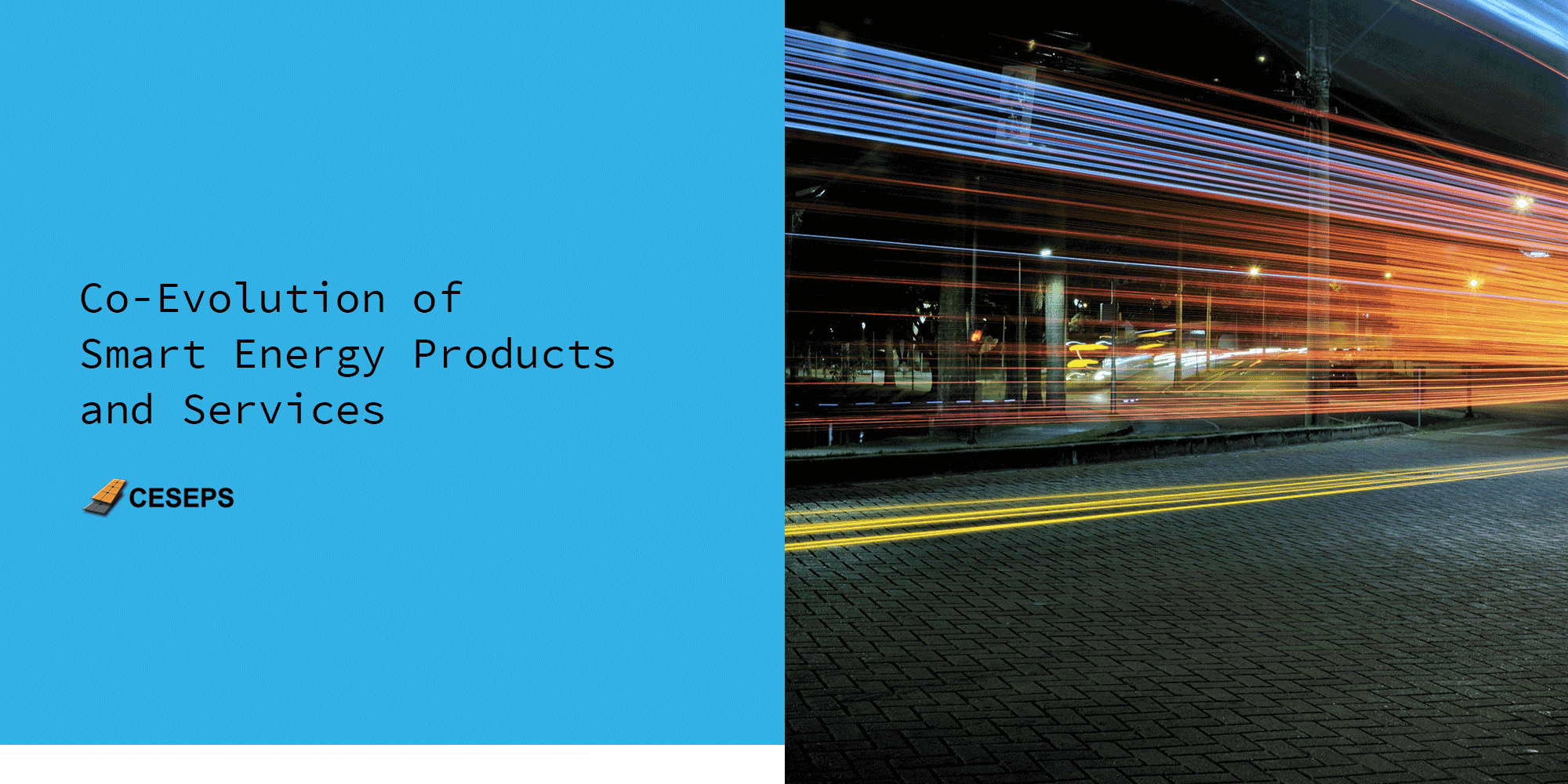
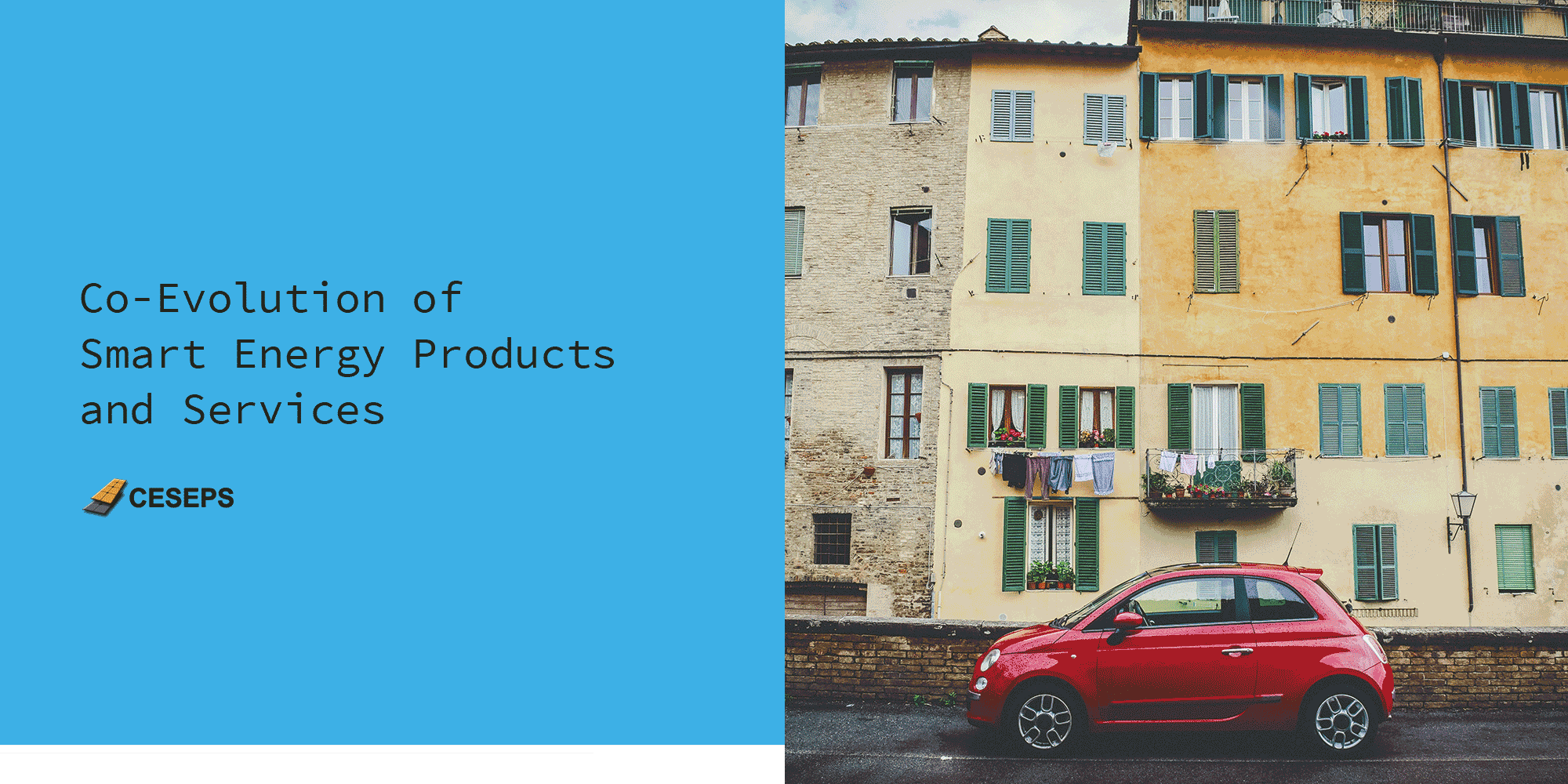
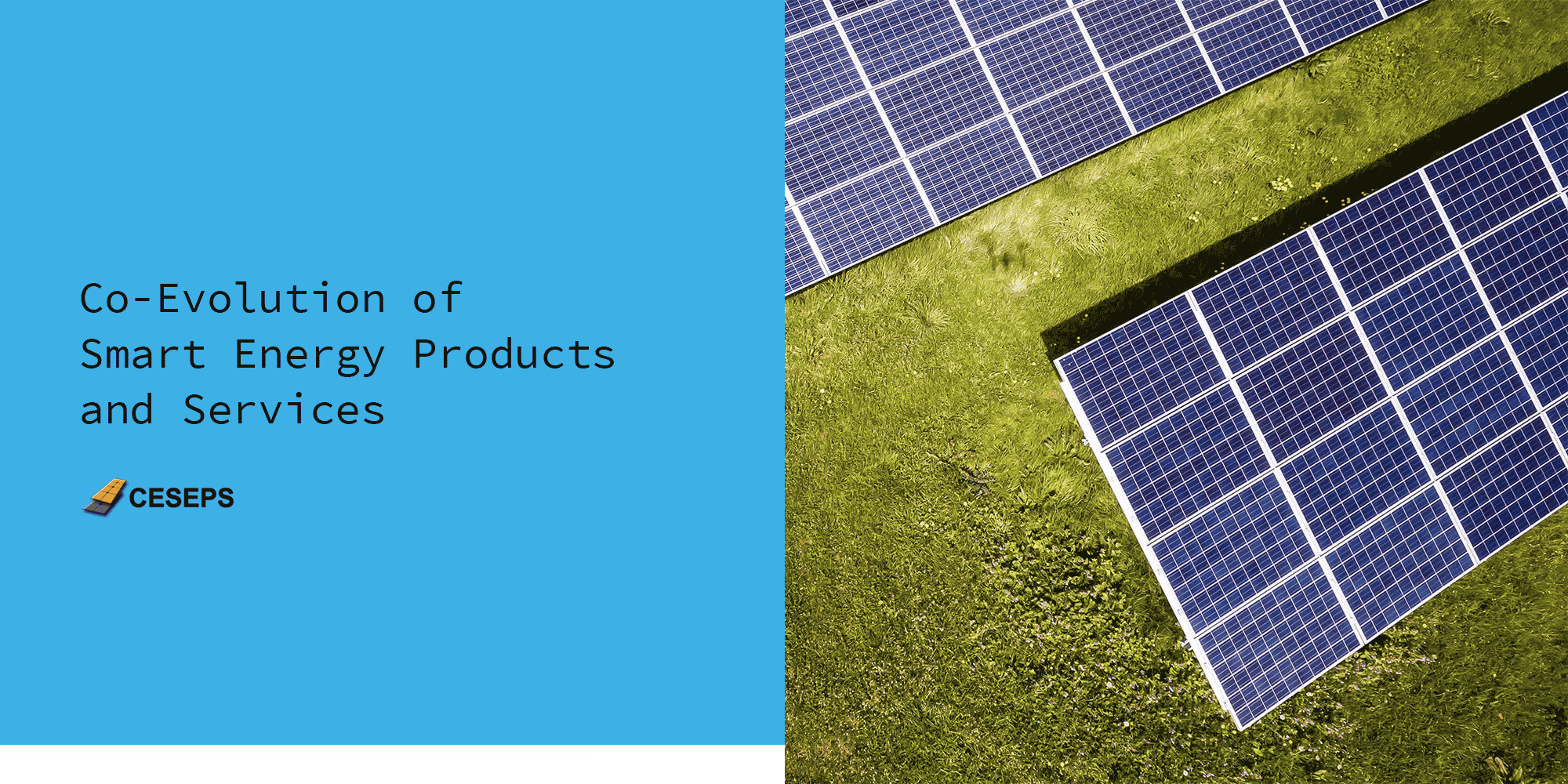

CESEPS is an ERA-Net Smart Grids Plus project funded by the European Commission. The aim of the project is to support the development of smart energy products and services for local smart grids that better respond to the demands and concerns of all stakeholders in terms of performance, cost, reliability, safety and robustness, sustainability and energy-efficiency, and end-users’ comfort. The research in this project is focused on comparative validation of technologies and concepts of existing demonstrations and the further development of new innovative energy products and services for the present and medium-term using a co-evolutionary approach.
The project involves research teams from the Netherlands and Austria, The Dutch team is composed of four universities, namely University of Twente, TU Delft, Wageningen University and Utrecht University and an international company based in the Netherlands, DNV GL. The Austrian team comprises the Technical University of Graz, the Austrian Institute of Technology, and the European Sustainable Energy Innovation Alliance.
Coordinator of the Transnational and Dutch Consortia, The Netherlands
Partner, Austria
Partner, Austria
Partner and Coordinatior of the Austrian Consortium, Austria
Partner, The Netherlands
Partner, The Netherlands
Partner, The Netherlands
Partner, The Netherlands
The project involves research teams from the Netherlands and Austria. The Dutch team is composed of four universities, namely University of Twente, TU Delft, Wageningen University and Utrecht University and an international company based in the Netherlands, DNV GL. The Austrian team comprises the Technical University of Graz, the Austrian Institute of Technology, and the European Sustainable Energy Innovation Alliance.
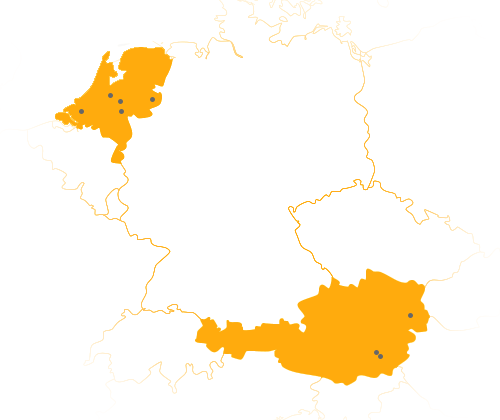
The project involves research teams from the Netherlands and Austria. The Dutch team is composed of four universities, namely University of Twente, TU Delft, Wageningen University and Utrecht University and an international company based in the Netherlands, DNV GL. The Austrian team comprises the Technical University of Graz, the Austrian Institute of Technology, and the European Sustainable Energy Innovation Alliance.




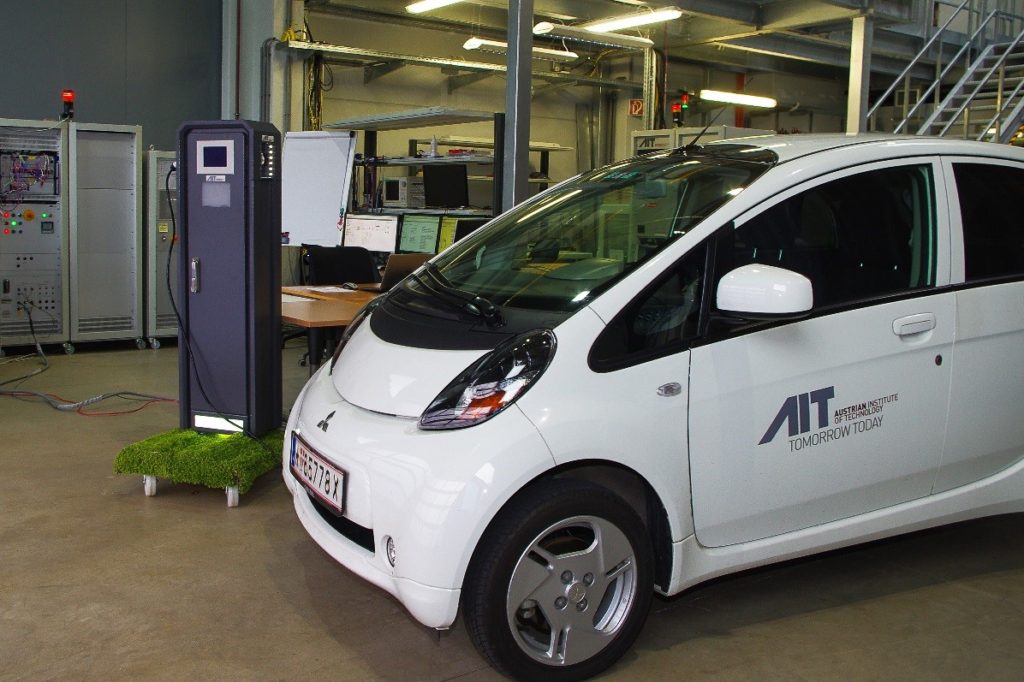
Further, the main objective of CESEPS is to support the development of smart energy products and services for local smart grids that better respond to the demands and concerns of all stakeholders in terms of performance, cost, reliability, safety and robustness, sustainability and energy-efficiency, and end-users’ comfort. The research in this project is focused on comparative validation of technologies and concepts of existing demonstrations and the further development of new innovative energy products and services for the present and medium-term using a co-evolutionary approach.
To realize these objectives and to achieve these goals, the project will perform a comparative validation of smart grid technologies and concepts in more than four existing demonstration projects in the Netherlands under the umbrella of the Smart Energy Collective of DNV GL, such as PowerMatching City, Your Energy Moment, Heerhugowaard, Lochem, Gorinchem and a new pilot at Ameland and in six ongoing pilots Austria called E-mobility on Demand, PlanGridEV, iWPP-Flex, EcoGrid EU, hybrid-VPP4DSO, IGREENGrid, and others. Adding to existing smart grid pilots, both Dutch and Austrian consortium members will develop innovative technological concepts for e-vehicles with fuel cells, solar charging and other charging solutions within the framework of the Green Village (TUD), Living Lab (UT), Energy storage (TU Graz), COTEVOS (AIT), DCgrids (TUD), Vehicle2Grid Utrecht (UU) through simulation and experimental laboratory set ups.
Further, the main objective of CESEPS is to support the development of smart energy products and services for local smart grids that better respond to the demands and concerns of all stakeholders in terms of performance, cost, reliability, safety and robustness, sustainability and energy-efficiency, and end-users’ comfort. The research in this project is focused on comparative validation of technologies and concepts of existing demonstrations and the further development of new innovative energy products and services for the present and medium-term using a co-evolutionary approach.
To realize these objectives and to achieve these goals, the project will perform a comparative validation of smart grid technologies and concepts in more than four existing demonstration projects in the Netherlands under the umbrella of the Smart Energy Collective of DNV GL, such as PowerMatching City, Your Energy Moment, Heerhugowaard, Lochem, Gorinchem and a new pilot at Ameland and in six ongoing pilots Austria called E-mobility on Demand, PlanGridEV, iWPP-Flex, EcoGrid EU, hybrid-VPP4DSO, IGREENGrid, and others. Adding to existing smart grid pilots, both Dutch and Austrian consortium members will develop innovative technological concepts for e-vehicles with fuel cells, solar charging and other charging solutions within the framework of the Green Village (TUD), Living Lab (UT), Energy storage (TU Graz), COTEVOS (AIT), DCgrids (TUD), Vehicle2Grid Utrecht (UU) through simulation and experimental laboratory set ups.
In this project, we aim to explore existing smart grid environments by evaluating the performance of energy products and services as well as end-users perceptions and stakeholder processes in a significant number of realized smart grid pilots in the Netherlands and Austria.
The research in our project can be seen in the framework of three layers: Marketplace, Stakeholder/Adoption, and Technology.
Marketplace. We will evaluate existing smart grid energy products and services and create new solutions to shape changing energy market structures with a focus on the ‘good design’ for energy products that support safe and reliable operation of local smart grids, demand side management and electric mobility in smart grids with a high penetration of renewables. From the perspective of energymarkets, the microeconomics of smart energy products and services will be evaluated in terms of return of investments, levelled costs of electricity, and real-time pricing versus time of use pricing. In particular in the field of e-mobility financial comparisons will be made between electric charging and consumption of fuels in cars equipped with a combustion engine.
Stakeholders/Adoption. Adoption of end-users such as individual persons and communities is a significant issue with regards new features in smart grids such as demand side management, exchange of energy with other end-users, a high penetration of renewable energy at a local level, the required flexibility for prosumer interactions and e-mobility. By interviews and observations of all smart grid stakeholders (both end-users and utilities, policy makers, network operators et cetera) their experiences, expectations and modes of interaction between them, will be captured to understand the acceptance, preferences, and practices occurring during the pilot projects. Information resulting from these studies will subsequently be applied in co-evolutionary development of smart energy products and services.
Technology. Smart grids host a large number of diverse energy technologies and ICT. In the framework of our research project we have selected a limited number of technologies in local smart grids that will be evaluated and validated in more detail. These are smart grids’ safety aspects and overall network reliability regarding their energy and power flows, energy-efficiency, local sustainable energy production and consumption, demand side management by self-consumption of energy generated in the smart grid pilot, forecasting techniques and mutual trading of energy with neighbors, controlled charging of EV by renewable energy sources and patterns of use.
In this project, we aim to explore existing smart grid environments by evaluating the performance of energy products and services as well as end-users perceptions and stakeholder processes in a significant number of realized smart grid pilots in the Netherlands and Austria.
The research in our project can be seen in the framework of three layers: Marketplace, Stakeholder/Adoption, and Technology.
Marketplace. We will evaluate existing smart grid energy products and services and create new solutions to shape changing energy market structures with a focus on the ‘good design’ for energy products that support safe and reliable operation of local smart grids, demand side management and electric mobility in smart grids with a high penetration of renewables. From the perspective of energymarkets, the microeconomics of smart energy products and services will be evaluated in terms of return of investments, levelled costs of electricity, and real-time pricing versus time of use pricing. In particular in the field of e-mobility financial comparisons will be made between electric charging and consumption of fuels in cars equipped with a combustion engine.
Stakeholders/Adoption. Adoption of end-users such as individual persons and communities is a significant issue with regards new features in smart grids such as demand side management, exchange of energy with other end-users, a high penetration of renewable energy at a local level, the required flexibility for prosumer interactions and e-mobility. By interviews and observations of all smart grid stakeholders (both end-users and utilities, policy makers, network operators et cetera) their experiences, expectations and modes of interaction between them, will be captured to understand the acceptance, preferences, and practices occurring during the pilot projects. Information resulting from these studies will subsequently be applied in co-evolutionary development of smart energy products and services.
Technology. Smart grids host a large number of diverse energy technologies and ICT. In the framework of our research project we have selected a limited number of technologies in local smart grids that will be evaluated and validated in more detail. These are smart grids’ safety aspects and overall network reliability regarding their energy and power flows, energy-efficiency, local sustainable energy production and consumption, demand side management by self-consumption of energy generated in the smart grid pilot, forecasting techniques and mutual trading of energy with neighbors, controlled charging of EV by renewable energy sources and patterns of use.
To overcome these technological and organisational challenges we suggest a co-evolutionary approach through which technology, marketplaces, emerging user needs and their adaption, as well as needs of stakeholders in business and governance will be merged.
Read more about the specific objectives of the CESEPS project.
Moreover, the means to temporarily store this energy, as well as the expected use of large numbers of new types of energy products (for example electric cars and heat pumps) will pose big engineering questions in the next 10-20 years. Smart grids are an important promising solution – at transnational, national and local levels – supporting the transition from centralized energy generation to energy systems containing more distributed, intermittent energy generation with a high penetration of renewable energy systems and flexible options to manage energy flows via advanced ICT. This paradigm shift will lead to new requirements towards increased flexibility of power systems, increased network capacity and new innovative energy products and services.
Another big challenge in smart grids development is to understand and influence consumer behaviour in smart grids. Social acceptance and a more active role of energy consumers are of great importance for the success of smart grids. Currently however the sector is strongly driven by technical developments; to support a healthy market place for smart energy systems, the supply of innovative product-service combinations in smart grids must be more responsive to the demands and requirements of various stakeholders in terms of performance, costs, safety, robustness and comfort. At present a lot of uncertainty exists about what product-service combinations will be offered, and a better understanding of these issues is required. Existing smart grid pilot projects are a rich source of information regarding marketplaces for new innovative energy products and services and the adoption processes of various stakeholders, including utilities, consumers, and network operators, in these smart grid pilots. These are important factors that can contribute to the development and successful implementation of smart grids within Europe. By capturing critical stakeholders’ preferences and experiences, smart energy products and services can be developed in a more effective way than solely through technical approaches that mainly focus on increased energy performance and reduction of costs.
To overcome these technological and organisational challenges we suggest a co-evolutionary approach through which technology, marketplaces, emerging user needs and their adaption, as well as needs of stakeholders in business and governance will be merged.
Read more about the specific objectives of the CESEPS project.
Reinders, A., Verlinden, P., van Sark, W., & Freundlich, A. Photovoltaic Solar Energy: From Fundamentals to Applications (2017). In A. Reinders, P. Verlinden, W. van Sark, & A. Freundlich (Eds.), Wiley & Sons.
https://onlinelibrary.wiley.com/doi/book/10.1002/9781118927496
van Wijk A, Hellinga C. Hydrogen – the key to the energy transition. In Circulariteit, op weg naar 2050?, TU Delft Open, 2018.
Robledo CB, Poorte MJ, Mathijssen HHM, van der Veen RAC, van Wijk AJM. Fuel Cell Electric Vehicle-to-Grid Feasibility: A Technical Analysis of Aggregated Units Offering Frequency Reserves. Intell. Integr. Energy Syst., Springer; 2019, p. 167–94. https://www.springerprofessional.de/en/fuel-cell-electric-vehicle-to-grid-feasibility-a-technical-analy/16230304
Reinders, A. et al. Designing with Photovoltaics, Taylor and Francis, 2019 (in progress).
Applied Science Special Issue: Advanced Applications for Smart Energy Systems Considering Grid-Interactive Demand Response
Guest Editor : Prof. Dr. Angele Reinders
https://www.mdpi.com/journal/applsci/special_issues/Smart_Energy_Systems
Gercek, C., Schram, W., Lampropoulos, I., van Sark, W. & Reinders, A. A Comparison of Households’ Energy Balance in Residential Smart Grid Pilots in the Netherlands. Applied Sciences 9, 2993 (2019).
https://doi.org/10.3390/app9152993
Reinders, A., Übermasser, S., van Sark, W., Gercek, C., Schram, W., Obinna, U., Lehfuss, F., van Mierlo, B., Robledo, C. & van Wijk, A. An Exploration of the Three-Layer Model Including Stakeholders, Markets and Technologies for Assessments of Residential Smart Grids. Applied Sciences 8, 2363 (2018).
Hoogvliet, T., Litjens, G.B.M.A., Van Sark, W.G.J.H.M. Provision of regulating- and reserve power by electric vehicle owners in the Dutch market, Applied Energy 190 (2017) 1008-1019.
http://dx.doi.org/10.1016/j.apenergy.2017.01.006
Obinna, U., Wauben, L., Joore, P. and Reinders, A. Comparison of two residential Smart Grid pilots in the Netherlands and in the USA, focusing on energy performance and user experiences, Applied Energy 191 (2017) 264–275. http://dx.doi.org/10.1016/j.apenergy.2017.01.086
Staats, M.R., De Boer-Meulman, P.D.M., Van Sark, W.G.J.H.M. Experimental determination of demand side management potential of wet appliances in the Netherlands, Sustainable Energy Grids and Networks, 9 (2017) 80-94.
http://dx.doi.org/10.1016/j.segan.2016.12.004
Weck, M.H.J., van Hooff, J., Van Sark, W.G.J.H.M. Review of barriers to the introduction of residential demand response: a case study in the Netherlands, International Journal of Energy Research 41 (2017) 790-816.
http://dx.doi.org/10.1002/er.3683
Oldenbroek, V., Verhoef, L.A., Wijk, A.J.M. Van. Fuel cell electric vehicle as a power plant: fully renewable integrated transport and energy system design and analysis for smart city areas, International Journal of Hydrogen Energy, in press.
http://dx.doi.org/10.1016/j.ijhydene.2017.01.155
Robledo, C. B., Oldenbroek V., Abbruzzese F., Wijk A.J.M. Integrating a hydrogen fuel cell electric vehicle with vehicle-to-grid technology, photovoltaic power and a residential building, Applied Energy , Volume 215(2018).
https://doi.org/10.1016/j.apenergy.2018.02.038
Lehfuss, F. Nöhrer, M. Evaluation of different control algorithm with low level communication requirements to increase the maximum electric vehicle penetration, IET Journals, Volume (2017) Issue 1.
http://dx.doi.org/10.1049/oap-cired.2017.0265
Fazey, I., Schäpke, N., Caniglia, G., Patterson, J., Hultman, J., Van Mierlo, B., & Al Waer, H. Ten essentials for action-oriented and second orderenergy transitions, transformations and climate change research, Energy Research & Social Science, 40 (2018), 54-70.
https://doi.org/10.1016/j.erss.2017.11.026
Schram, W. L., Lampropoulos, I., & van Sark, W. G. Photovoltaic systems coupled with batteries that are optimally sized for household self-consumption: Assessment of peak shaving potential, Applied Energy Volume 223 (2018).
https://doi.org/10.1016/j.apenergy.2018.04.023
Obinna, U., Joore, P. Wauben, L., Reinders A. Preferred attributes of home energy management products for smart grids – results of a design study and related user survey,Journal of Design Research (JDR), Vol. 16 (2018), Issue 2.
https://doi.org/10.1504/JDR.2018.092809
Zhang, Z.; Gercek, C.; Renner, H.; Reinders, A.; Fickert, L. Resonance Instability of Photovoltaic E-Bike Charging Stations: Control Parameters Analysis, Modeling and Experiment. Applied Sciences 2019, 9, 252.
https://doi.org/10.3390/app9020252
van Mierlo, B. Users Empowered in Smart Grid Development? Assumptions and Up-To-Date Knowledge. Applied Sciences 2019, 9(5), 815.
Solar Integtration Week, CESEPS session with 3 oral presentations, October 2018, Stockholm; Energynautics.
Sustainable Urban Energy Systems, CESEPS session with 4 oral presentations, November 2018, Delft; TU Delft.
Smart Energy Systems in Cities and Regions, CESEPS project exploitation meeting, April 2018, Dublin, Ireland; DIT/Eseia.
Workshop Alliander, 3 oral presentations, December 2017, Delft; The Green Village.
Gercek, C., Reinders, A., Sierra, A., Schram, W., van Sark, W., van Mierlo, B., Brouwers, H., Gultekin, E., Robledo, C. and Wijk, A. Co-Evolution of Smart Energy Products and Services, Final Report by University of Twente, Netherlands, May 2019.
Click here to access our Final Report.
Reinders, A., Hassewend, B., Obinnna, U., Markocic, E., de Respinis, M., Schram W., van Sark, W., Gultekin, E., van Mierlo, B., van Wijk, A., Robledo, C., Uebermasser, S. & Lehfuss, F. Literature Study on Existing Smart Grids Experiences. Enschede, CESEPS / University of Twente, 2018.
Click here to access our Literature Study
Brouwers, H., van Mierlo, B., Residential smart grid projects in the Netherlands: an overview. Twente : CESEPS / Wageningen :Wageningen University and Research, February 2019. Click here to access.
Brouwers, H.,van Mierlo, B., The learning history of Smart Grid Lochem: A smart grid project initiated by an energy cooperative. Twente : CESEPS / Wageningen :Wageningen University and Research, February 2019. Click here to access.
Brouwers, H., Gültekin, E., van Mierlo, B., Learning about user engagement in smart grid niche development: An analysis of 4 smart grid projects. Twente : CESEPS / Wageningen :Wageningen University and Research, February 2019. Click here to access.
van Wijk A., van der Roest, E., Boere J. Solar Power to the People; IOS press Amsterdam 2017. ISBN 978-1-61499-831-0 (print, English). ISBN 978-1-61499-832-7 (online, English). doi 10.3233/978-1-61499-832-7-i. ISBN/EAN 978-90-827637-0-6 (print, Dutch)
van Wijk, A; The Green Hydrogen Economy in the Northern Netherlands; The Northern Netherlands Innovation Board, Groningen, 2017. ISBN 978-90-826989-0-9 (English). ISBN 978-90-826989-1-6 (Dutch)
van Wijk, A.; The Green Hydrogen Economy in the Northern Netherlands Full report; The Northern Netherlands Innovation Board, Groningen, 2017. ISBN 978-90-826989-3-0 (English)
Gercek C., Reinders A., Sierra A., Schram W., van Sark W., van Mierlo B., Gultekin E., Brouwers H., Robledo C. B. & van Wijk A. Co-Evolution of Smart Energy Products and Services Project Final Report, CESEPS / University of Twente, 2019 (in progress).
Reinders, A.H.M.E., Respinis, M. de, Loon, J. van, Schram, W., Sark, W. van, Gultekin, E., Mierlo, B. van, Robledo, C., Papaioannou, I., Wijk, A. van, Stekelenburg, A., Bliek, F., Esterl, T., Uebermasser, S., Lehfuss, F., Lagler, M., Schmautzer, E., Höhn, T. and Fickert, L. Co-Evolution of Smart Energy Products and Services: a Novel Approach towards Smart Grids, Asian Conference on Energy, Power and Transportation Electrification (ACEPT), Singapore, October 25-27, 2016, Oral presentation, http://ieeexplore.ieee.org/document/7811522/
Lehfuss, F. Nöhrer, M. Evaluation of different control algorithm with low level communication requirements to increase the maximum electric vehicle penetration, CIRED 2017,Glasgow,June 12-15, 2017.
https://ieeexplore.ieee.org/document/7811522/
Übermasser, S. Kloibhofer, S. Weihs, P. Stifter, M. Concept for intra-hour PV generation forecast based on distributed PV inverter data, SmartGreens 2018, Funchal, March 16-18, 2018.
http://digital-library.theiet.org/content/journals/10.1049/oap-cired.2017.0265
AlSkaif, T., Schram, W., Litjens, G., & van Sark, W. Smart Charging of Community Storage Units Using Markov Chains IEEE PES Innovative Smart Grid Technologies Conference Europe (ISGT-Europe) Turin 26-29 Sept. 2017.
https://ieeexplore.ieee.org/document/8260177/
Oldenbroek, V., Hamoen, V., Alva, S.,Robledo, C.B., Verhoef, L., van Wijk, A. Fuel Cell Electric Vehicle-to-Grid: Experimental feasibility and operational performance, 6th European PEFC and Electrolyser Forum, Lucerne, Switzerland, July 4-7, 2017.
Robledo, C.B.,Oldenbroek, V., Seiffers, J., Seiffers, M., van Wijk, A. Performance of a Lightweight Fuel Cell/Battery Hybrid Electric Vehicle Operating in Vehicle-to-Grid, 2017 Fuel Cell Seminar and Energy Exposition, Long Beach, California US, November 7-9, 2017.
Litjens, G., Van Sark, W., Worrell, E. On the Influence of Electricity Demand Patterns, Battery Storage and PV System Design on PV Self-Consumption and Grid Interaction 43rd IEEE PV specialist conference Portland, US June 5-10, 2016.
Gültekin, E., van Mierlo B. C. Energy Cultures, Communities and Consumption: Exploring the social, political and cultural dynamics of energy system change Association of American Geographers (AAG) Boston, US April 5-9, 2017.
Reihs,D., Übermasser,S., Lehfuss. F., Evaluation of different control strategies for residential Smart Energy systems focusing on self-consumption & grid sustainabilit, Eseia Conf., Dublin, 10-12 April 2018.
http://dit.ie/dublinenergylab/dit-eseiaconference/paperpresentations/
Gercek, C., Reinders A. Balancing Smart Appliances with Renewable Energy Sources in PowerMatching City, Eseia Conf. Dublin 10-12 April 2018.
http://dit.ie/dublinenergylab/dit-eseiaconference/paperpresentations/
van Mierlo, B., Gültekin, E., The role of users in smart grids developments: a review Eseia Conf. Dublin 10-12 April 2018.
http://dit.ie/dublinenergylab/dit-eseiaconference/paperpresentations/
Zhang, Z., Fickert, L. Impacts of Load Shift on Grid from Electric Vehicles – Charging in terms of DR Resources Eseia Conf. Dublin 10-12 April 2018.
http://dit.ie/dublinenergylab/dit-eseiaconference/paperpresentations/
Apostolou G., Geurs K.T., Reinders A.H.M.E. Technical performance and user aspects of solar powered e-bikes – Results of a field study in The Netherlands Eseia Conf. Dublin 10-12 April 2018.
http://dit.ie/dublinenergylab/dit-eseiaconference/paperpresentations/
Gercek, C., Reinders A. Photovoltaic Energy Integration : A Case Study on Residential Smart Grids Pilots in the Netherlands, EUPVSEC 2018, Brussel.